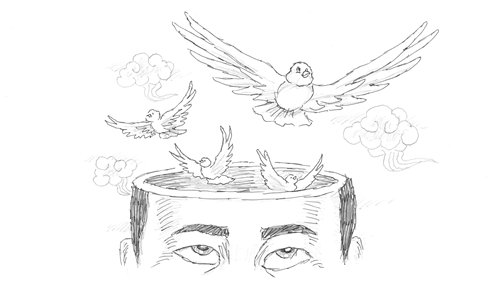In the modern history of the world, 1978 does not seem to be unique. Wikipedia's memo of the year begins like this: 1978 was a common year starting on Sunday of the Gregorian calendar.

Illustration: Peter C. Espina/Global Times
But for hundreds of thousands of Chinese and their families, 1978 is an unforgettable year. Their fate and that of their descendants, and all 56 ethnic groups living in this ancient land changed dramatically from that year.
At the end of 1978, the Central Committee of the Communist Party of China held a meeting in Beijing, the Third Plenary Session of the 11th Central Committee of the CPC. The event wasn't reported extensively abroad as there were not many foreign media outlets in Beijing at the time.
Four decades later, when the rise of China became a phenomenon of global interest, people began to understand the significance of the meeting of that year.
British scholar Martin Jacques wrote in his column published in The Guardian on May 25, 2006, "If the 20th century ended in 1989, the 21st began in 1978." He said that China began a tentative step of moving from egalitarianism to market economy, which involved "the making of a very different kind of history."
The editorial of the People's Daily put it up more accurately on January 1, 1979, with the headline, "Put our main focus on production and construction."
These views on reform and opening up are all related to the policy announced at that meeting, thus ushering the whole country on the road to economic development.
For ordinary people like me, perhaps the most important thing was not those policies, but the year that suddenly filled us with hope for the future, and our mind opened to a brave new world. The most important message sent by the meeting was to give wings to your thoughts and let them fly.
Together with countless young people, I walked out of the shadow of the Cultural Revolution (1966-76) and became a university student - a dream of many years. The future was here at our feet.
I remember the famous saying of the futurist Alvin Toffler at the time: "Like the revolutionary ancestors, our mission is destined to create the future." It has become the motto of our generation, inspiring us to run to the library to grab seats, turn on the flashlight in the dorm after the lights are off at night and read the book in the quilt.
The opening up brought us not only reflections and breakthroughs on old concepts, but also a clear understanding of the direction of development of the country and ourselves.
Forty years ago, when the door opened, the nation carefully and skeptically looked for ways to communicate with the outside world. Coca-Cola changed its investment destination from one place to another because of the boycott; even the appearance of jeans caused a fierce controversy.
By freeing up the mind, we can cast our eyes on the world with passion. We looked at our gap with the modern world and we had an open mind to learn from abroad. We tried very hard to catch up with the developed nations.
The first step of opening up and freeing up the mind triggered successive conceptual changes, opened the door for China to access the world and made the country more and more confident while walking to the center of the world stage.
After the dramatic changes in the Soviet Union and East European socialist countries in the late 1980s, China's development met with difficulties. What the outside world did not realize is that China still followed its own path of reform and opening up, overcame difficulties with the power of freeing up the mind and unleashed a stronger development momentum.
China is the most populous country and the Chinese people have a fine tradition of working hard and learning sincerely. The development experience of more than 40 years shows that the harder it is, the more essential it becomes to keep freeing up the mind and let people's thoughts fly. Only in this way can the fine traditions be fully utilized and the difficulties overcome, especially for China today.
The author is a senior editor at People's Daily and a senior fellow at the Chongyang Institute for Financial Studies at Renmin University of China.


